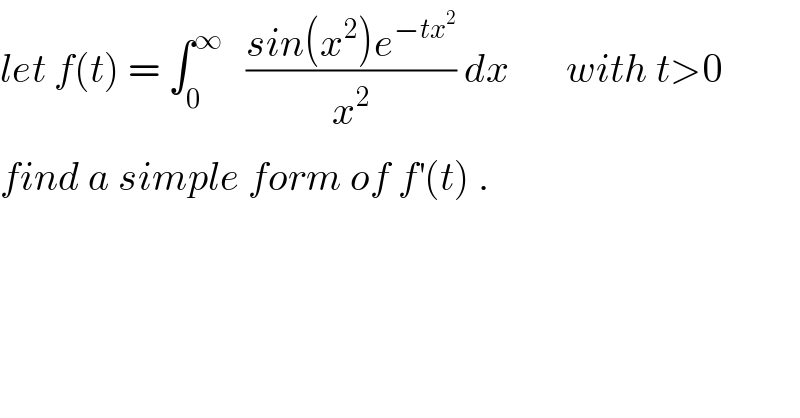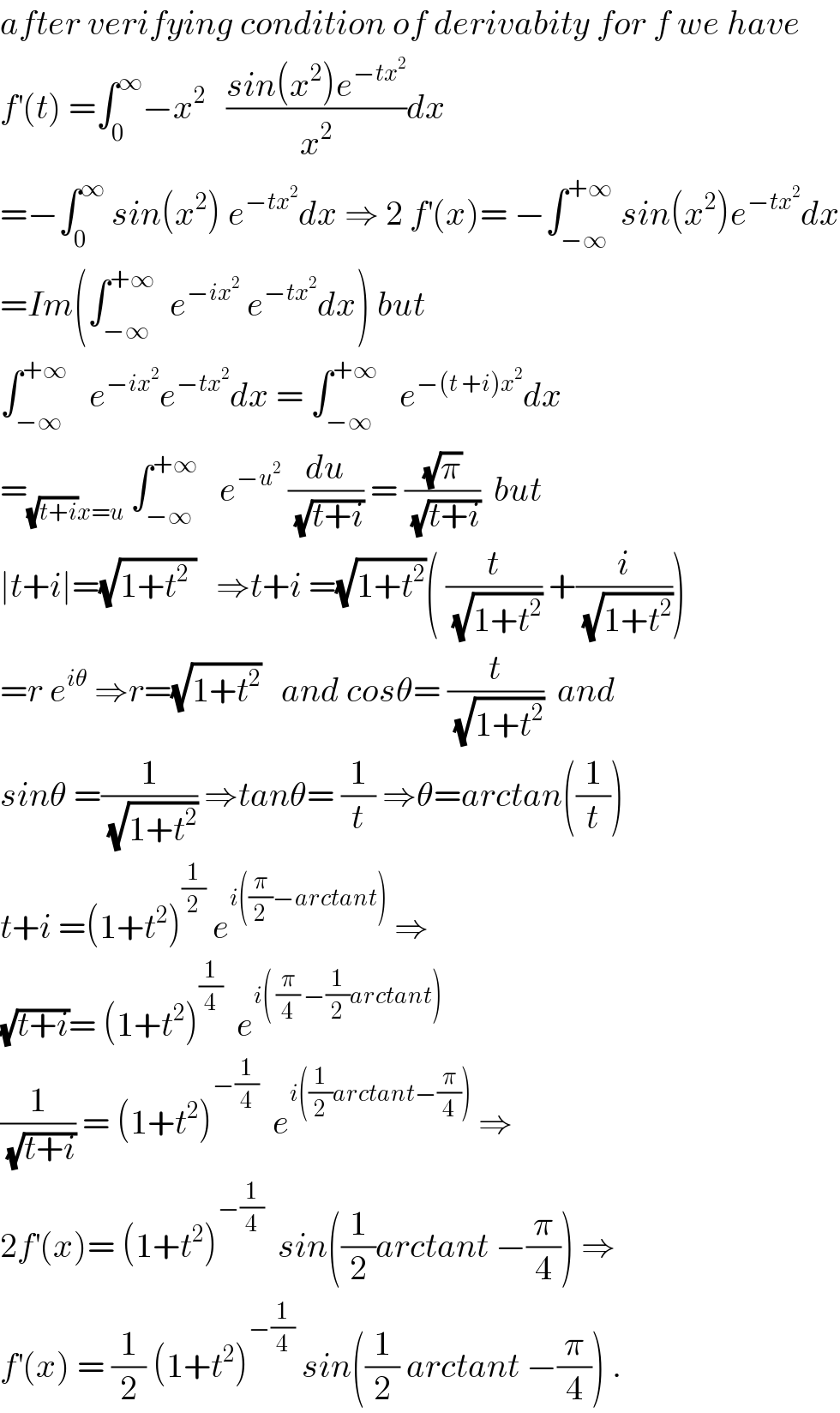
Question and Answers Forum
Question Number 33978 by abdo imad last updated on 28/Apr/18

Commented bymath khazana by abdo last updated on 01/May/18

Commented bymath khazana by abdo last updated on 01/May/18

Answered by candre last updated on 30/Apr/18
![f(t)=∫_0 ^∞ ((sin x^2 e^(−tx^2 ) )/x^2 )dx lets use the fact that ∫_(−∞) ^(+∞) e^(−ax^2 ) dx=(√(π/a)) sin x=((e^(ix) −e^(−ix) )/(2i)) we get (df/dt)=∫_0 ^∞ (∂/∂t)((sin x^2 e^(−tx^2 ) )/x^2 )dx =−∫_0 ^∞ sin x^2 e^(−tx^2 ) dx =−∫_0 ^∞ ((e^(ix^2 ) −e^(−ix^2 ) )/(2i))e^(−tx^2 ) dx =−(1/(2i))[∫_0 ^∞ e^((i−t)x^2 ) dx−∫_0 ^∞ e^(−(i+t)x^2 ) dx] =((√π)/(4i))((√(1/(t+i)))−(√(1/(t−i))))](Q34122.png)
